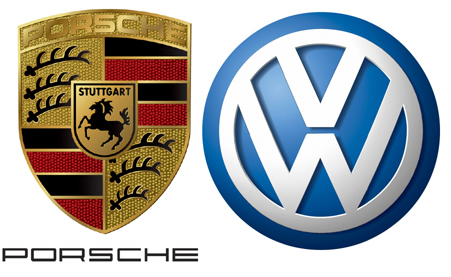Porsche suffers setback in Volkswagen struggle
 Berlin - Luxury carmaker Porsche hit a bump Friday in its plans to win control of its big brother Volkswagen, with Porsche directors suffering defeats in key votes at a Volkswagen Group board meeting.
Berlin - Luxury carmaker Porsche hit a bump Friday in its plans to win control of its big brother Volkswagen, with Porsche directors suffering defeats in key votes at a Volkswagen Group board meeting.
After 40,000 Volkswagen workers rallied at VW's Wolfsburg headquarters Friday morning in support of state influence on the company, labour leaders were jubilant at the setback for Porsche.
During the afternoon the board forbade direct contacts by Volkswagen's premium-car division Audi with Porsche executives.
That challenge not only knocked Porsche stock 0.2 per cent lower to 89.83 euros (127.39 dollars) and boosted Volkswagen stock 0.3 per cent to 212.85 euros on the Frankfurt Stock Exchange, but appeared to indicate a feud within the extended family that controls Porsche.
Ferdinand Piech, 71, a Porsche cousin who chairs the Volkswagen supervisory board, allowed his proxy vote there to be exercised in his absence against the family bloc led by Wolfgang Porsche.
The board also voted in support of an article of association that gives the German state of Lower Saxony a veto on major Volkswagen decisions.
The worker demonstration outside followed the announcement this week by European Commissioner Charlie McCreevy that he would take the German government to the European Court of Justice to get a law overturned that allows Lower Saxony its special right of veto.
He said it infringed European Union (EU) competition law. Most workers support political influence over the sprawling company.
"We need more democracy and not less in an era of globalization and financial market capitalism," Berthold Huber, head of the powerful IG Metall union, said.
Most VW workers belong to the union, Germany's largest.
Michael Sommer, head of the DGB German labour federation, insisted the VW law, which gives the Lower Saxony government a blocking vote although it holds only 20.1 per cent of the VW voting rights, should be retained.
The head of VW's workers' council, Bernd Osterloh, said all companies should have rules "against the arbitrary power of capital."
Luxury carmaker Porsche, which holds 30.6 per cent of VW voting rights, is demanding the repeal of the law.
Lower Saxony Premier Christian Wulff attacked McCreevy, urging the Irish commissioner to attend to gaining a majority in his own country for the EU's Treaty of Lisbon, rather than seeking to influence German company law.
Speaking to national public broadcaster ZDF on Friday, Wulff said McCreevy was being dictatorial and that there had to be "a few laws" where Brussels had no say.
Wulff, who as premier sits on VW's board, said he did not believe the European Commission would heed McCreevy's call for renewed legal action, saying that the EU could not interfere in German company law.
Lower Saxony's blocking minority was essential to prevent Porsche, which has indicated it intends to increase its stake, from moving the VW headquarters to Stuttgart, where Porsche is based, Wulff said.
Ireland was the only country in the EU to hold a referendum on the EU's new treaty, while the other 26 member states passed it through their parliaments. The Irish rejected the treaty in June, stalling the bloc's constitutional process.
The European Commission first objected to the law, which dates back to VW's privatization in 1960, in 2004, and the European Court of Justice ordered the German federal government to amend the law.
In May, Berlin put forward an amended law that McCreevy has rejected as it maintains the 20-per-cent blocking minority for Lower Saxony. (dpa)